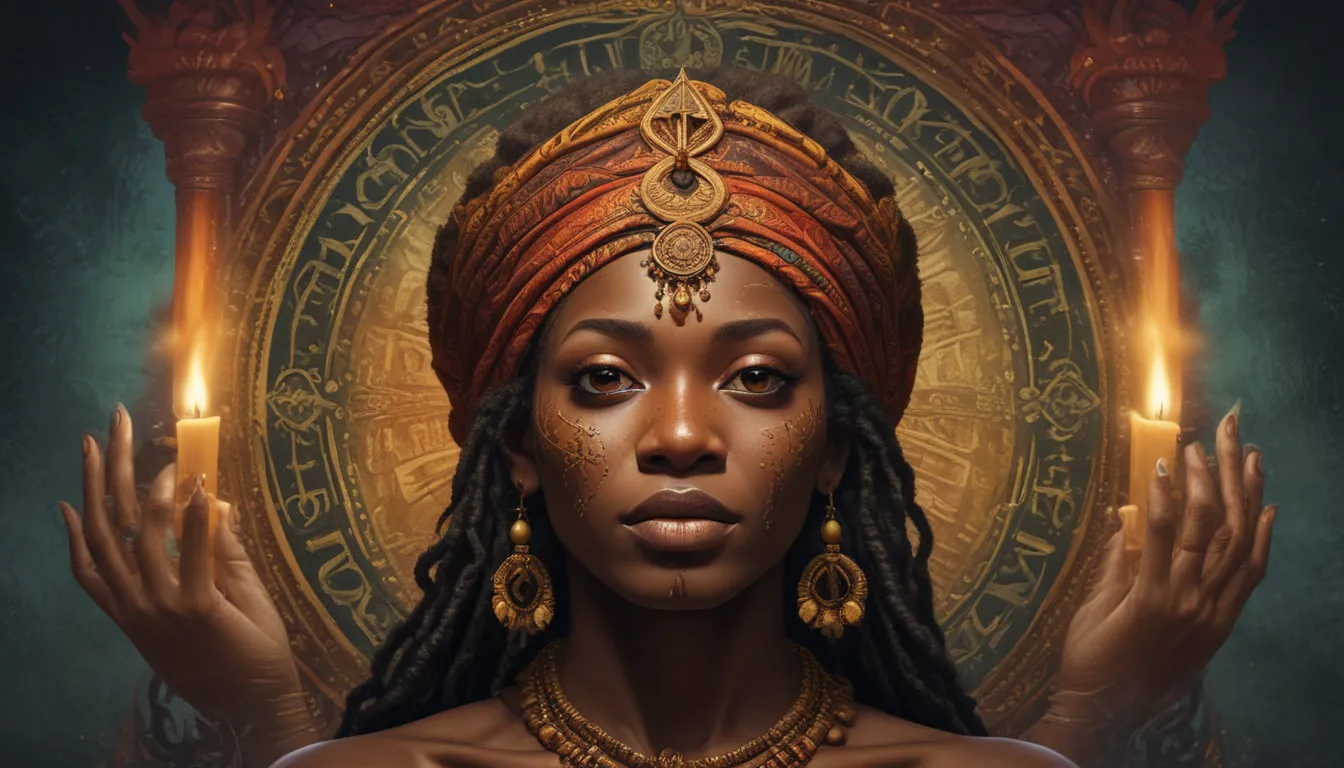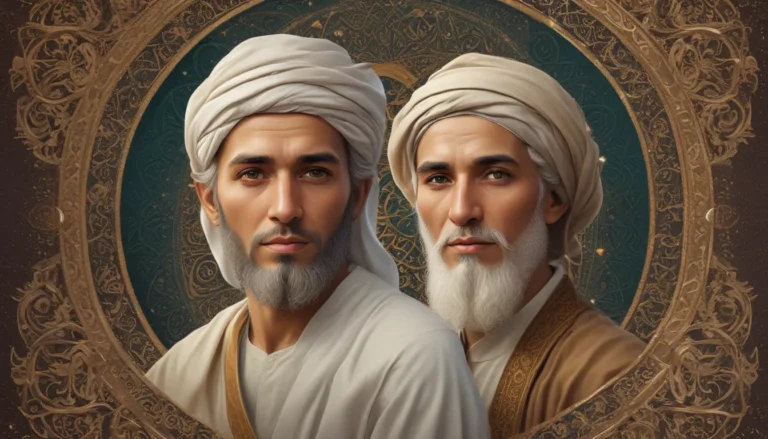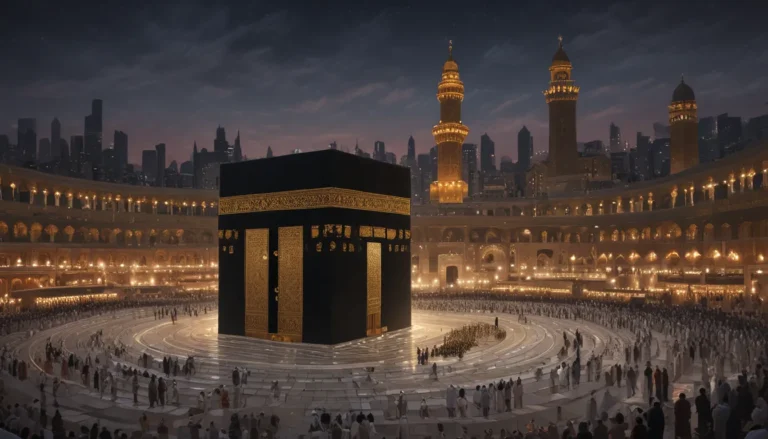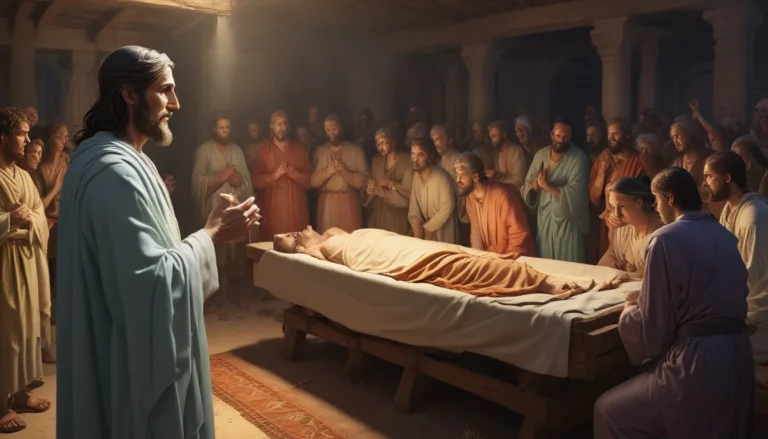The images in our articles may not match the content exactly. They are used to grab your attention, not to show the exact details in the text. The images complement the text but do not replace it.
Are you intrigued by mystical and magical practices deeply rooted in the Caribbean? If so, let’s embark together on a journey into the captivating world of Obeah. Originating in West Africa and brought to the Caribbean through the transatlantic slave trade, Obeah is a religious and spiritual belief system that has evolved into a unique blend of African, Indigenous, and European traditions. This article aims to unveil 15 fascinating facts about Obeah, shedding light on its history, beliefs, rituals, and significance in Caribbean culture. From its controversial reputation to its connection with spirituality and healing, let’s explore the captivating aspects of this ancient practice.
Key Takeaways:
- Obeah is a diverse spiritual practice rooted in Caribbean culture, blending African, Indigenous, and European traditions to bring healing, protection, and guidance to individuals and communities.
- Obeah is not inherently good or evil; its impact depends on the intentions and actions of the practitioner. It continues to evolve and adapt, reflecting the ever-changing world we live in.
Obeah: A Spiritual and Healing Practice Developed in the Caribbean
Obeah stands as a powerful spiritual and healing practice that originated in the Caribbean, showcasing a blend of African, Indigenous, and European cultures’ beliefs and traditions that have intertwined over centuries. Obeah practitioners, often referred to as Obeahmen or Obeahwomen, tap into the forces of nature and establish connections with ancestral spirits to catalyze positive changes in the lives of individuals and communities.
Demystifying the Misunderstandings Surrounding Obeah
Obeah often finds itself shrouded in misunderstanding and misrepresentation, often associated with black magic or witchcraft due to its mystical nature. However, in reality, Obeah is a complex belief system that encompasses various spiritual practices including healing, protection, divination, and manifestation. It serves as a medium for connecting with the spiritual realm and harnessing its powers for the betterment of individuals and society at large.
The Fusion of Cultures: African, Indigenous, and European Elements in Obeah
Embracing a syncretic nature, Obeah intertwines elements from African, Indigenous, and European spiritual traditions. Rituals, symbols, and beliefs from diverse cultures such as West African spiritual practices, Native American spirituality, and European folk magic find their place within the tapestry of Obeah, reflecting the rich history and influences that have sculpted the Caribbean region.
The Interplay Between Obeah and Christianity
Many practitioners of Obeah incorporate Christian elements into their spiritual practices, a consequence of historical colonization where Christianity was imposed upon enslaved Africans in the Caribbean. As a result, Obeah rituals and ceremonies often interweave prayers, Bible verses, and references to Christian saints with traditional African and Indigenous spiritual practices.
Enigmatic Talismans and Charms: Tools of Obeah Rituals
Talisman and charm-making serve as integral components of Obeah rituals, believed to harbor specific energies and powers capable of offering protection, attracting good luck, or warding off negative influences. Crafted from materials ranging from herbs to stones and animal parts, these talismans and charms cater to various purposes and intentions dictated by the practitioner.
Obeah: Persecution and Celebration Across History
The historical trajectory of Obeah is marked by a complex interplay of persecution and celebration. While European powers during the colonial era suppressed and criminalized Obeah due to its perceived threat to their authority, Afro-Caribbean communities celebrated it as a source of spiritual empowerment and resistance against oppression.
Obeah’s Enduring Presence in Caribbean Beliefs
Despite enduring centuries of repression, belief in Obeah remains prevalent in many Caribbean countries. Passed down through generations, Obeah practices are upheld by practitioners who play significant roles as healers, advisors, and spiritual leaders within their communities. Obeah is revered as a conduit for seeking guidance, protection, and solutions to life’s challenges.
Invoking Ancestral Spirits: Central to Obeah Rituals
Central to Obeah rituals is the invocation of ancestral spirits. Practitioners establish a spiritual connection with their ancestors through prayers, chants, and offerings, believing that this connection grants access to ancestral wisdom, guidance, and power.
The Versatility of Obeah Rituals
Obeah rituals cater to a diverse array of purposes ranging from healing physical and emotional ailments to attracting love and prosperity, removing spiritual blockages, and seeking spiritual guidance. These rituals often involve the use of herbs, candles, incense, and sacred objects to create an environment conducive to spiritual communication and manifestation.
Embracing Nature and the Elements: The Essence of Obeah
Obeah acknowledges the power and significance of nature and the elements, underscoring the interconnectedness of humans, plants, animals, and the natural world. Obeah rituals frequently take place in natural settings such as forests or rivers, harnessing the energy and spiritual vibrations of the environment.
The Decentralized Nature of Obeah
Obeah stands as a decentralized spiritual practice devoid of centralized authority or hierarchy. Each practitioner imparts their unique approach and methods, often inherited through familial or communal traditions, fostering a diverse landscape of beliefs and practices.
Inclusivity Across Ethnic and Cultural Boundaries: Obeah’s Reach
Embracing people of all ethnic and cultural backgrounds, Obeah transcends limitations and welcomes individuals from diverse racial and cultural landscapes. Its universal principles of connection, healing, and spiritual empowerment resonate with those seeking a deeper understanding of themselves and the world.
Personalized and Confidential: The Essence of Obeah Practices
Personalization lies at the core of Obeah rituals, with practitioners working closely with clients to comprehend their individual needs and aspirations before crafting personalized rituals and remedies. This bespoke approach ensures that each spiritual journey is tailored to the specific circumstances of the individual.
Unveiling the Nuances: Obeah’s Moral Compass
Contrary to popular belief, Obeah, like any spiritual practice, lacks inherent goodness or evilness, with the intentions and actions of the practitioner shaping the outcome. While Obeah serves as a source of healing and protection, the potential for misuse or manipulation underscores the importance of approaching it with ethical integrity.
Embracing Evolution: Obeah in Modern Times
Just as Obeah has adapted and evolved over its historical trajectory, it continues to do so in contemporary times. Global connectivity and the exchange of ideas have influenced Obeah, enriching its diversity and fostering a dynamic and vibrant spiritual tradition that mirrors the evolving world we inhabit.
A Glimpse into the World of Obeah: Conclusion
In conclusion, Obeah emerges as a captivating and intricate religious practice deeply entrenched in African spirituality while encapsulating a myriad of beliefs, rituals, and practices that have metamorphosed over the centuries. Beyond being a religious tradition, Obeah serves as a cultural expression interwoven with the history and identity of the Caribbean region.
Throughout this exploration, we have unveiled 15 enlightening facts about Obeah, shedding light on its origins, beliefs, and practices. From its connections to African ancestral worship to its association with spiritual healing and protection, Obeah offers a unique perspective on the spiritual realm. Despite its occasional misunderstanding or misrepresentation, Obeah remains an integral facet of the Caribbean cultural fabric, offering solace, guidance, and a sense of belonging to its practitioners.
FAQs: Unveiling Common Queries About Obeah
Q: What is Obeah?
A: Obeah is a religious and spiritual practice originating in Africa and introduced to the Caribbean region by enslaved Africans. It encompasses beliefs, rituals, and practices linked to African ancestral worship.
Q: Is Obeah perceived as a form of witchcraft?
A: While Obeah incorporates spiritual rituals and practices, it distinguishes itself from witchcraft by focusing on connecting with ancestral spirits and harnessing their energy for healing, protection, and guidance.
Q: Is Obeah actively practiced today?
A: Obeah remains practiced in the Caribbean, particularly in nations like Jamaica, Trinidad and Tobago, and Barbados. However, its practice often faces stigmatization and misunderstanding due to its ties to African spirituality.
Q: Are there inherent risks in practicing Obeah?
A: As with any spiritual practice, approaching Obeah with respect and caution is crucial. Seeking guidance from experienced practitioners and ensuring that rituals and intentions are carried out with pure motives is imperative.
Q: Are there similarities between Obeah and other religions?
A: Obeah shares resemblances with other African diasporic religions such as Vodou, Santeria, and Hoodoo. While rooted in African spiritual traditions, these religions have evolved unique characteristics influenced by their respective regions of practice.
Q: Can anyone engage in Obeah practices?
A: Traditionally transmitted through lineages or families, Obeah is typically practiced within these frameworks. Nonetheless, individuals can be initiated into Obeah and practice outside these traditions, necessitating a profound understanding of Obeah’s rituals, symbols, and spiritual beliefs.
Q: Is Obeah recognized as an official religion?
A: Though not universally acknowledged as an official religion, Obeah harbors significant cultural and historical importance within the Caribbean region. Efforts aimed at preserving and safeguarding Obeah as a recognized part of Caribbean heritage are underway.
Q: Is Obeah practiced beyond the Caribbean?
A: Primarily practiced in the Caribbean, Obeah has also journeyed to other parts of the world through migration and diaspora, finding a foothold among Caribbean communities established in different regions.
Q: Can Obeah be wielded for malevolent purposes?
A: While Obeah inherently focuses on positive intentions, the risk of misuse exists, just like any spiritual practice. Some individuals may exploit Obeah for personal gains, manipulation, or harm, contrary to the fundamental principles of Obeah.
Q: Do legal constraints impede Obeah practice?
A: Legal standings on practicing Obeah fluctuate across Caribbean nations. While some countries recognize and protect Obeah as a cultural and religious practice, others may view it skeptically or subject it to legal restrictions.
With its enthralling blend of spiritual traditions and rituals, Obeah serves as a window into the vibrant mosaic of Caribbean culture. For those eager to delve into further aspects of this rich heritage, immersing oneself in the exuberant festivities of Toronto Caribbean Carnival (Caribana) promises an enriching experience. Delving into the complexities of Falun Gong offers an intriguing foray into another captivating spiritual practice, while exploring the diverse types of witches unravels the enigmatic world of witchcraft, catering to varied interests.
Your Contribution Matters
Every fact on our platform is a product of real user contributions, embodying diverse insights and information. Our dedicated editors meticulously review each submission, ensuring stringent standards of accuracy and reliability. Rest assured that by engaging with us, you’re accessing credible and engaging content crafted with your exploration and learning in mind. Trust in our commitment to quality and authenticity as you journey through the diverse realms of knowledge and discovery.






